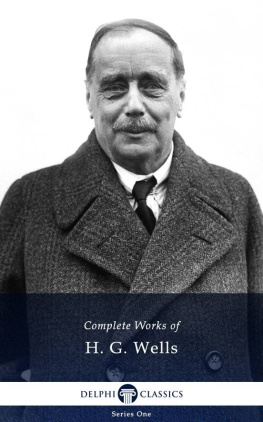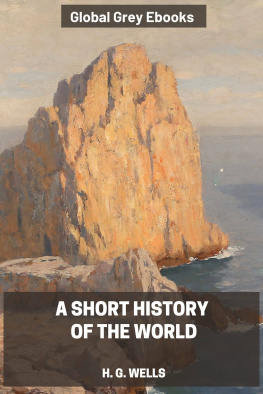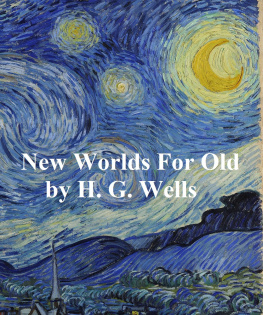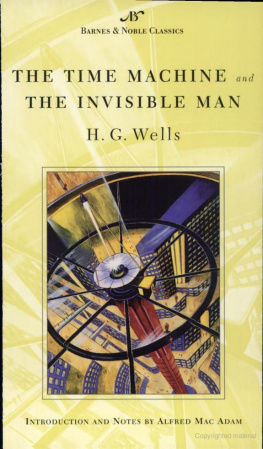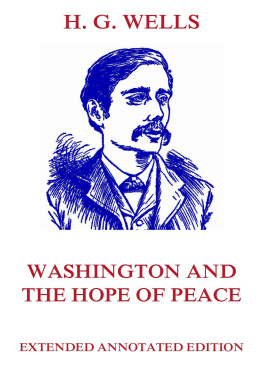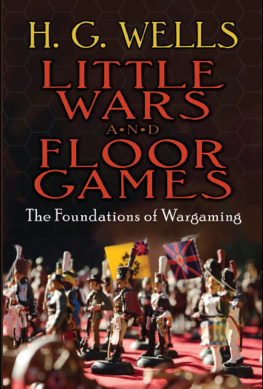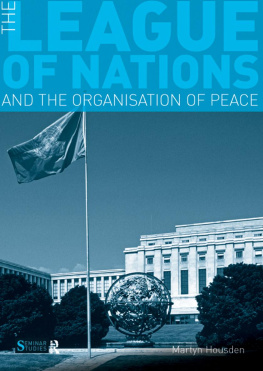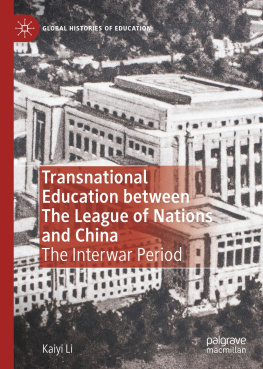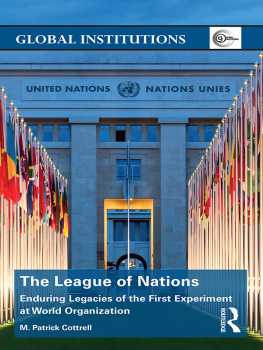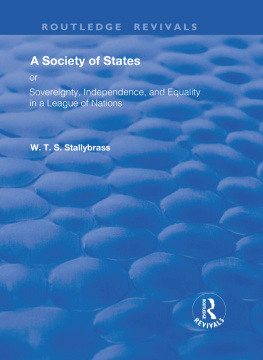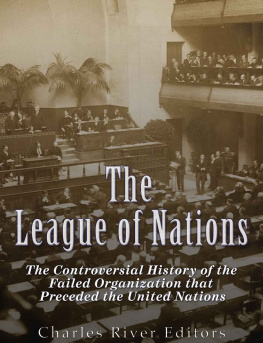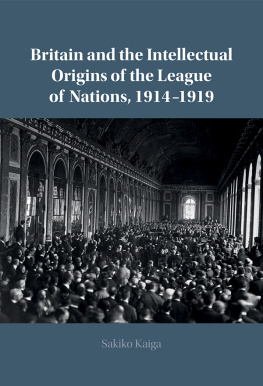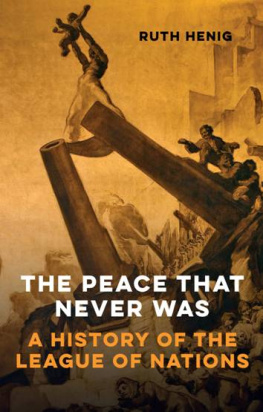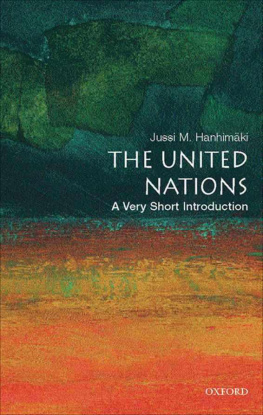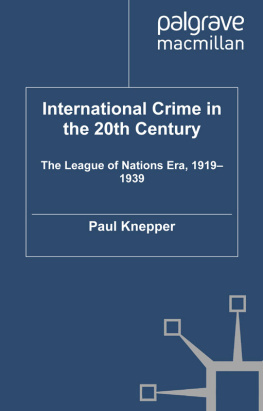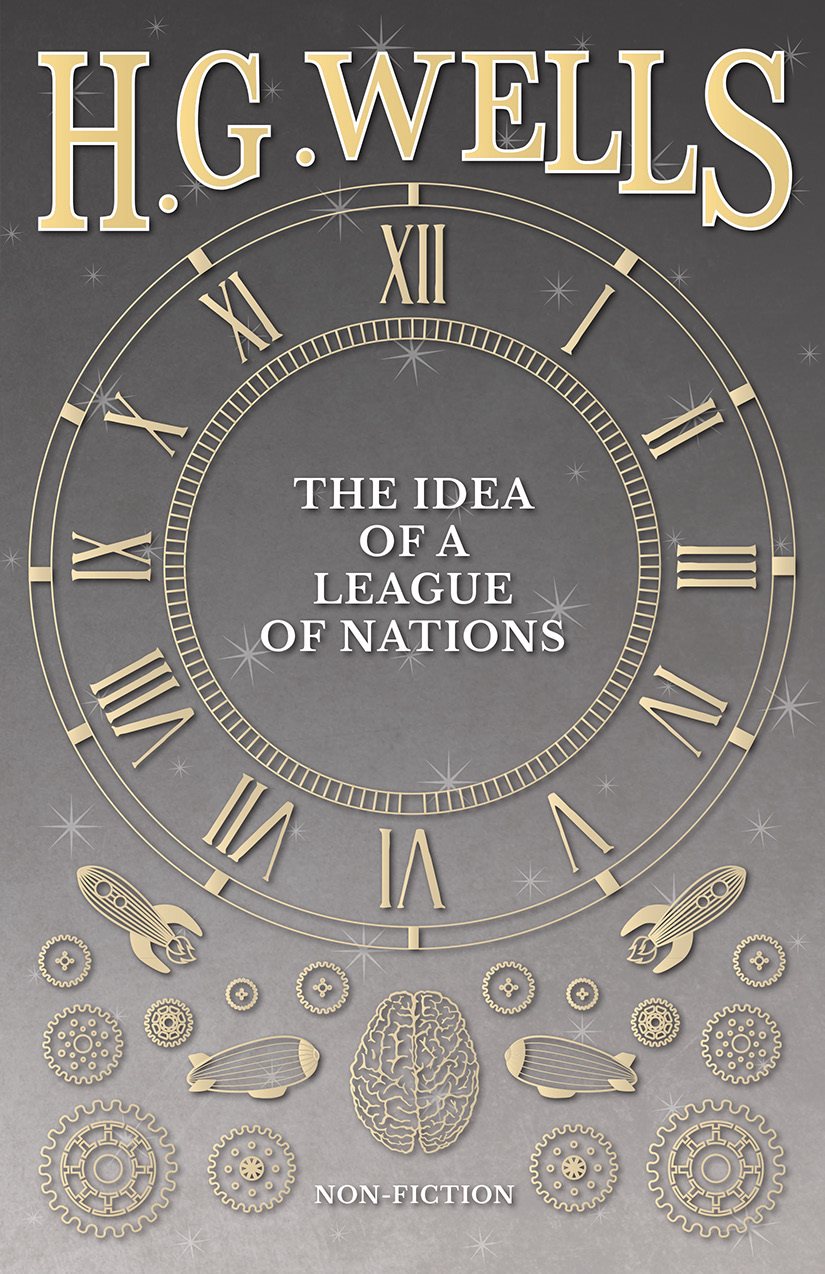THE IDEA OF A
LEAGUE OF NATIONS
By
H. G. Wells
Copyright 2016 Read Books Ltd.
This book is copyright and may not be
reproduced or copied in any way without
the express permission of the publisher in writing
British Library C ataloguing-in-Publicatio n Data
A catalogue record for this book is available from
the British Library
Contents
H. G. Wells
Herbert George Wells was born in Bromley, England in 1866. He apprenticed as a draper before becoming a pupil-teacher at Midhurst Grammar School in West Sussex. Some years later, Wells won a scholarship to the School of Science in London, where he developed a strong interest in biology and evolution, founding and editing the Science Schools Journal. However, he left before graduating to return to teaching, and began to focus increasingly on writing. His first major essay on science, The Rediscovery of the Unique, appeared in 1891. However, it was in 1895 that Wells seriously established himself as a writer, with the publication of the now iconic novel, The Time Machine.
Wells followed The Time Machine with the equally well-received War of the Worlds (1898) , which proved highly popular in the USA, and was serialized in the magazine Cosmopolitan . Around the turn of the century, he also began to write extensively on politics, technology and the future, producing works The Discovery of the Future (1902) and Mankind in the Making (1903). An active socialist, in 1904 Wells joined the Fabian Society, and his 1905 book A Modern Utopia presented a vision of a socialist society founded on reason and compassion. Wells also penned a range of successful comic novels, such as Kipps (1905) and The History of Mr Polly (1910).
Wells 1920 work, The Outline of History, was penned in response to the Russian Revolution, and declared that world would be improved by education, rather than revolution. It made Wells one of the most important political thinkers of the twenties and thirties, and he began to write for a number of journals and newspapers, even travelling to Russia to lecture Lenin and Trotsky on social reform. Appalled by the carnage of World War II, Wells began to work on a project dealing with the perils of nuclear war, but died before completing it. He is now regarded as one of the greatest science-fiction writers of all time, and an important political thinker.
A small group of qualified Englishmen have long been working toward Universal Peace from an angle of their own. Forming the League of Free Nations Association they have divided the principal problems among experts, for extended study, appraisal and suggestions for solution. These inquiries, eventually to be published in book form, will, in the Atlantics belief, form a highly important treatise on World Peace; but, in the meantime, the group has united in the compilation of the following article, which may well serve as an introduction to all attempts at a League of Nations. The composite authorship of the paper is especially interesting, the names of the collaborators being
H.G. Wells, Chairman
H. Wickham Steed, Viscount Grey, Gilbert Murray, Lionel Curtis, J. A. Spender, William Archer, Secretary, A.E. Zimmern, Viscount Bryce
PART ONE
I
UNIFICATION of human affairs, to the extent at least of a cessation of war and a worldwide rule of international law, is no new idea; it can be traced through many centuries of history. It is found as an acceptable commonplace in a fragment, De Republica, of Cicero. It has, indeed, appeared and passed out of the foreground of thought, and reapeared there, again and again.
Hitherto, however, if only on account of the limitations of geographical knowledge, the project has rarely been truly world-wide, though in some instances it has comprehended practically all the known world. Almost always there has been an excluded fringe of barbarians and races esteemed as less than men.
The Roman Empire realized the idea in a limited sphere and in a mechanical, despotic fashion. It was inherent in the propaganda of Islam excluding the unbeliever. It may be said that the political unity of Christendom overriding states and nations was the orthodox and typical doctrine of the Middle Ages. The individual states were regarded as being, in the nature of things, members of one great body politic, presided over by the Pope, or the Emperor, or both. It was the idea of the world supremacy of the Empire which inspired Dantes De Monarchia; but, as Lord Bryce has remarked, Dantes book was an epilogue instead of a prophecy.
It cannot be claimed that history shows any continuously progressive movement of human affairs from a dispersed to a unified condition. Rather it tells a story of the oscillating action of separatist and unifying forces. And the process of civilization itself, if we use the word in its narrower and older sense of the elaboration of citizenship in a political and social organization, and exclude mechanical and scientific progress from it, has on the whole been rather on the side of fragmentation. It was, for example, much easier for loosely organized tribes and village communities scattered over wide areas to coalesce into vague and often very extensive nations, like the Scythians and Thracians, or to cooperate in amplictyonics, or federations, like the small peoples of central Greece, than for highly developed city-states or fully organized monarchies, possessing a distinctive culture and religion and definite frontiers, to sink these things in any larger union. For such higher forms of political organization, enlargement occurred mainly through conquest., which created unstable empire systems of subject and subordinate peoples under the sway which might of course be the assimilative sway of a dominant nation, rather than real unifications.
The Renaissance presents a phase in history in which a large vague unification (Christendom) is seen to be breaking up simultaneously with the appearance of a higher grade of national organization. Machiavelli, with his aspiration toward a united Italy, involving a distintegration of the Empire, opened the phase of the national state in Europe, which reached its fullest development in the seventeenth, eighteenth, and nineteenth centuries. Before the Renaissance Europe was far more of a unity than it was at the close of the reign of Queen Victoria, when it consisted mainly of a group of nations, with their national edges sharpened and hardened almost to a maximum, each aspiring to empire and each acutely suspicious of and hostile to its neighbors. The idea of international organization for peace seemed far more Utopian to the normal European intelligence in 1900 than it would have done eight hundred years before.
But while those political and social developments which constitute civilization in the narrower sense of the word were tending to make human societies, as they became more elaborately organized, more heterogeneous and mutually unsympathetic, there were also coming into play throughout the eighteenth and nineteenth centuries, for the first time, upon a quite unprecedented scale, another series of forces diametrically opposed to human separations. They worked, however, mutely, because the world of thought was unprepared for them. Unprecedented advances in technical and scientific knowledge were occurring, and human cooperation and the reaction of man upon man, not only in material but also in mental things, was being made enormously more effective than it had ever been before. But the phrases of international relationship were not altering to correspond. Phrases usually follow after rather than anticipate reality, and so it was that at the outbreak of the Great War in August, 1914, Europe and the world awoke out of a dream of intensified nationality to a new system of realities which were entirely antagonistic to the continuance of national separations.


